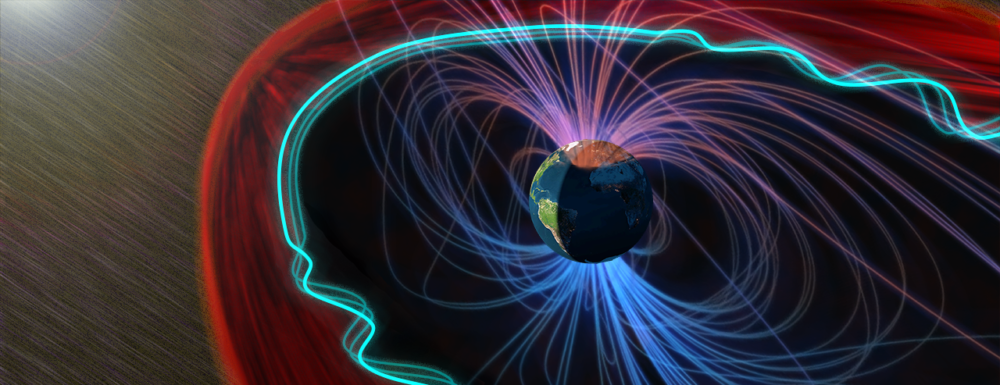Team members are required to acknowledge support from ISSI in all publications relevant to our scientific topics and aims, using the following wording:
This research was supported by the International Space Science Institute (ISSI) in Bern, through ISSI International Team project #546 “Magnetohydrodynamic Surface Waves at Earth’s Magnetosphere (and Beyond)”
The following papers have resulted from the team thus far:
- Archer et al. (2023) Auroral, Ionospheric and Ground Magnetic Signatures of Magnetopause Surface Modes. Journal of Geophysical Research: Space Physics, 128, e2022JA031081. https://doi.org/10.1029/2022JA031081
- Archer et al. (2023) Magnetosonic ULF Waves With Anomalous Plasma–Magnetic Field Correlations: Standing Waves and Inhomogeneous Plasmas. Geophysical Research Letters, 50, e2023GL104762. https://doi.org/10.1029/2023GL104762
- Archer et al. (2024) Magnetopause MHD surface wave theory: progress & challenges. Frontiers in Astronomy and Space Sciences, 11, 1407172. https://doi.org/10.3389/fspas.2024.1407172
- Archer et al. (2024) Crucial Future Observations and Directions for Unveiling Magnetopause Dynamics and their Geospace Impacts. Frontiers in Astronomy and Space Sciences, 11. https://doi.org/10.3389/fspas.2024.1430099
- Blasl et al. (2024) Lower-Hybrid Wave-Induced Plasma Mixing Related to Kelvin-Helmholtz Vortices During Southward IMF. Journal of Geophysical Research: Space Physics, 129, e2024JA033152. https://doi.org/10.1029/2024JA033152
- Di Matteo & Villante (2025) Simultaneous Occurrence of Magnetospheric Fluctuations at Different Discrete Frequencies (f ≈ 1 – 5 mHz): A Review. Space Science Reviews, 221, 40. https://doi.org/10.1007/s11214-025-01166-6
- Gao et al. (2024) Temporal evolution of axially standing kink motions in solar coronal slabs: An eigenfunction expansion approach. Astronomy & Astrophysics, 692, A259. https://doi.org/10.1051/0004-6361/202452139
- Grimmich et al. (2024) The Cluster spacecrafts’ view of the motion of the high-latitude magnetopause. Annales Geophysicae, 42, 371-394. https://doi.org/10.5194/angeo-42-371-2024
- Grimmich et al. (2025) Investigation of the occurrence of significant deviations in the magnetopause location: solar-wind and foreshock effects. Annales Geophysicae, 43, 151-173. https://doi.org/10.5194/angeo-43-151-2025
- Hartinger et al. (2023) Properties of Magnetohydrodynamic Normal Modes in the Earth’s Magnetosphere. Journal of Geophysical Research: Space Physics, 128, e2023JA031987. https://doi.org/10.1029/2023JA031987
- Kavosi et al. (2023) Seasonal and diurnal variations of Kelvin-Helmholtz Instability at terrestrial magnetopause. Nature Communications, 14, 2513. https://doi.org/10.1038/s41467-023-37485-x
- Kelly et al. (2024) Identification of Kelvin-Helmholtz generated vortices in magnetised fluids. Frontiers in Astronomy and Space Sciences, 11, 1431238. https://doi.org/10.3389/fspas.2024.1431238
- Kolotkov et al. (2023) The centroid speed as a characteristic of the group speed of solar coronal fast magnetoacoustic wave trains. Monthly Notices of the Royal Astronomical Society, 527, 6807-6813. https://doi.org/10.1093/mnras/stad3681
- Liou et al. (2023) Statistical Study of the Energetic Electron Microinjections at the High-Latitude Magnetosphere. Journal of Geophysical Research: Space Physics, 128, e2023JA031595. https://doi.org/10.1029/2023JA031595
- Nykyri (2024) Giant Kelvin-Helmholtz (KH) Waves at the Boundary Layer of the Coronal Mass Ejections (CMEs) Responsible for the Largest Geomagnetic Storm in 20 Years. Geophysical Research Letters, 51, e2024GL110477. https://doi.org/10.1029/2024GL110477
- Nykyri et al. (2024) Could a Low-Frequency Perturbation in the Earth’s Magnetotail be Generated by the Lunar Wake? Geophysical Research Letters, 51, e2024GL110129. https://doi.org/10.1029/2024GL110129
- Rice et al. (2024) Multi-scale processes of the Kelvin-Helmholtz instability at Earth’s magnetopause. Frontiers in Astronomy and Space Sciences, 11, 1464010. https://doi.org/10.3389/fspas.2024.1464010
- Shi et al. (2024) Damped kink motions in a system of two solar coronal tubes with elliptic cross sections. Astronomy & Astrophysics, 686, A1. https://doi.org/10.1051/0004-6361/202449319
- Shi et al. (2025) Statistical Characterization of Joule Heating Associated With Ionospheric ULF Perturbations Using SuperDARN Data. Journal of Geophysical Research: Space Physics, 130, e2024JA033452. https://doi.org/10.1029/2024JA033452
- Sorathia et al. (2024) Identifying the Magnetospheric Drivers of Giant Undulations: Global Modeling of the Evolving Inner Magnetosphere and Its Auroral Manifestations. Geophysical Research Letters, 51, e2024GL110772. https://doi.org/10.1029/2024GL110772
- Walach et al. (2024) SMILE Winter Campaign. RAS Techniques and Instruments, 3, 556-564. https://doi.org/10.1093/rasti/rzae038
- Zeng et al. (2024) Ultralow-frequency Waves in Jupiter’s Magnetopause Boundary Layer. The Astrophysical Journal, 976, 92. https://doi.org/10.3847/1538-4357/ad88ea
Team members may log relevant papers for reporting to ISSI by emailing the team leaders.

